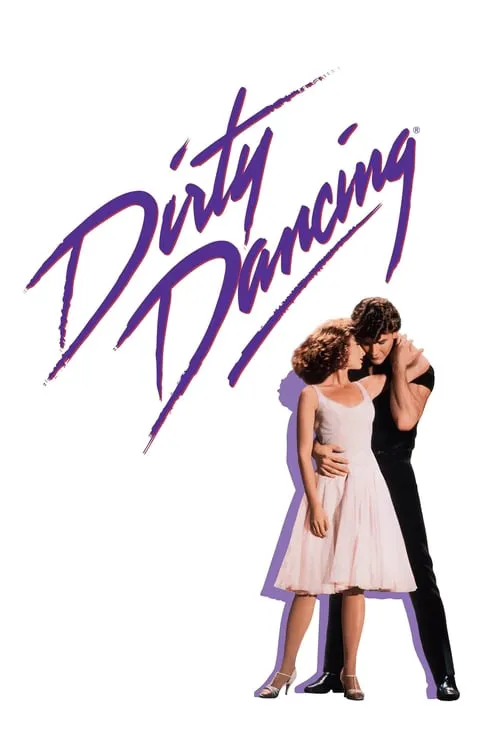Dirty Dancing

Plot
Dirty Dancing, a timeless romantic drama directed by Emile Ardolino, is a magnificent tale of self-discovery, family dynamics, and the unbridled power of love. The film, released in 1987, boasts an incredibly talented ensemble cast, led by the captivating Jennifer Grey as Frances 'Baby' Houseman, a spirited and adventurous young woman who embarks on a journey that would leave an indelible mark on her life. The film opens in the sweltering summer of 1963, with the Houseman family – patriarch Jake, matriarch Marjorie, and siblings Lisa, Neil, and Baby – arriving at Kellerman's, a picturesque resort in the Catskill Mountains, for the summer vacation. Baby, 17, is poised on the cusp of young adulthood, burdened with a life of privilege and expectation. Her parents, both members of the wealthy and influential upper class, hope to see their daughter grow into a refined, polished lady. However, Baby yearns for something more – freedom, excitement, and a chance to forge her own path. One sultry summer evening, Baby is forced to sit through the obligatory resort dance show, a sanitized spectacle designed to appeal to the vacationing families. As she watches the performance with growing discomfort, her gaze falls upon the resort's working-class dance staff, comprised of talented but overlooked young women. The charismatic Johnny Castle, a prominent member of the dance crew and played by Patrick Swayze, catches Baby's attention with his infectious energy and effortless charm. Baby becomes enamored with the world of the dance staff, sensing that they are living life on their own terms, free from the constraints of her own privileged world. With the guidance of Johnny's mentorship, Baby begins to learn the art of dance, quickly mastering the seductive moves of the era. As they spend more time together, Baby and Johnny's connection deepens, and they find themselves succumbing to their undeniable attraction. However, their relationship is fraught with obstacles. Baby's family, particularly her parents, disapprove of her interactions with the 'lower class' Johnny, labeling him as a 'hoodlum.' Meanwhile, Johnny is hesitant to become involved with Baby, given the inherent danger of their social disparity and the negative repercussions that could ensue. Torn between her loyalty to her family and her love for Johnny, Baby finds herself caught in a complicated web of desires, expectations, and societal pressures. As the summer wears on, tensions between Baby and her family escalate. Her father, Jake, grows increasingly disapproving of her association with Johnny and the resort's dance staff, causing a rift that threatens to expose the dark underbelly of their family's reputation. In a bold move, Baby chooses to defy convention, insisting that Johnny teach her the true art of dance, which, unbeknownst to Baby's parents, becomes a catalyst for their daughter's empowerment. When resort owner Max Kellerman threatens to fire the entire dance crew unless they comply with his strict rules, Baby concocts a plan to save the dancers. She takes center stage at the summer's final resort dance show, determined to showcase Johnny's talent and fight for the rights of the underserved dancers. As the spotlight shines brightly on her, Baby confidently dances to the songs of the age, channeling her own inner strength, passion, and determination. Throughout the film, the bond between Baby and Johnny transcends the boundaries of their social differences, transforming into a passionate love that is authentic and unapologetic. Their narrative serves as a backdrop to a poignant exploration of social class, love, and the transformative power of dance. As Baby finds her own voice, the film reminds us that true freedom requires courage, vulnerability, and a willingness to challenge the status quo. The film's enchanting portrayal of 1960s summer nostalgia is complemented by a remarkable soundtrack, featuring hits like "(I've Had) The Time of My Life," "Hungry Eyes," and "She's Like the Wind." The memorable performance of "Big Girls Don't Cry" becomes an iconic highlight, exemplifying Baby's growth from a constrained innocence to a liberating confidence. The beautiful summer setting of the Catskills serves as an atmospheric backdrop, painting a cinematic picture of a fleeting summer of adventure and transformation. Dirty Dancing resonates as a timeless classic, offering an exhilarating exploration of love, identity, and rebellion. The enduring legacy of the film lies in its beautifully rendered summer of transformation, where love knows no boundaries and the dance floor becomes a poignant battleground for self-discovery and empowerment.
Reviews
Recommendations




